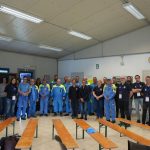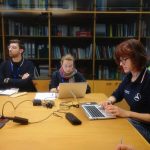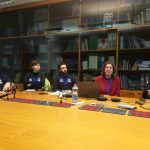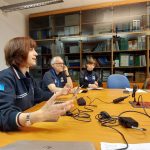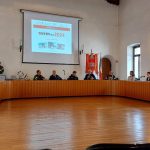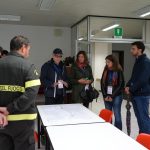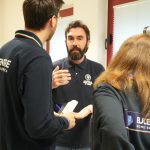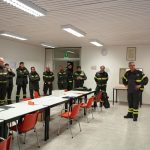The Italian ROADMAP2 exercise took place on 16 May 2024. The tabletop exercise organised in Italy occurred in Palmanova at the Regional Operations Centre of Friuli Venezia Giulia. The Regional Civil Protection, the Regional Fire Brigade, the Municipality of Pordenone and the University of Udine participated in the exercise.
Two multi-hazard scenarios were proposed during the exercise, considering a flood event followed a few hours later by a seismic event. The first scenario considered a situation with vulnerable buildings and no river embankment works in the area of interest. The second scenario considered the same multi-hazard event but with a less vulnerable built-up area and the implementation of levee systems. Participants were asked to indicate possible disaster risk management activities for both scenarios. Thanks to the cooperation of the participants, a lot of information on emergency management and good practices was gained.
The SERMex 2024 Exercise: A Collaborative and Innovative Approach
The ROADMAP2 project exercise was part of the larger SERM-ex 2024 multi-risk exercise organised by the SERM Academy from 16 to 18 May, in which the project partners participated as observers to evaluate possible good practices to be included in the Solution Explorer software.
The SERMex 2024 multi-hazard exercise, which took place in the municipalities of Venzone, Montenars, Tarcento, Magnano in Riviera, Artegna, Pordenone, Prata di Pordenone and Pasiano di Pordenone, was an important opportunity to test the tools and procedures used by the Friuli Venezia Giulia Regional Civil Protection (PCR-FVG) and the Fire Brigade (VVF) during the disaster response phase in multi-hazard emergencies.
Each day provided valuable lessons and feedback that will help strengthen the responsiveness of SERM Academy activities. The collaboration between technicians, volunteers and external observers enriched the experience and fostered an environment of continuous learning and improved operational practices.
The presence of experienced scientific observers, both internal (from the University of Udine) and external (from the University of Naples, Federico II and the EUCENTRE Foundation), allowed for valuable feedback and an exchange of knowledge and practices. The latter’s participation underlined the importance of cooperation in the context of training and preparation for emergencies.

